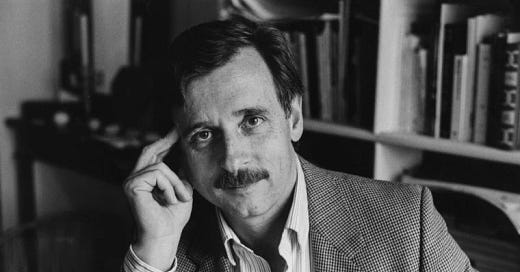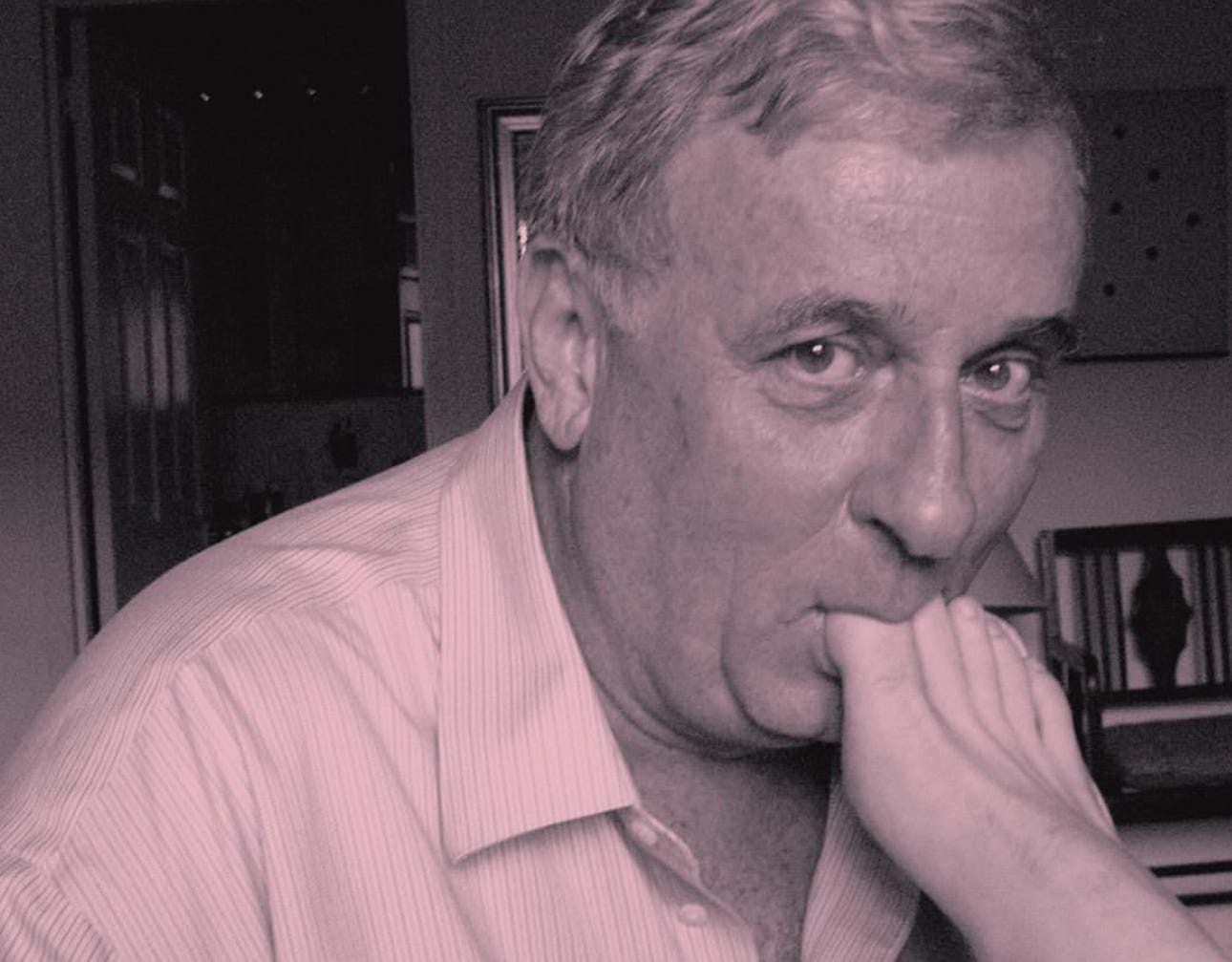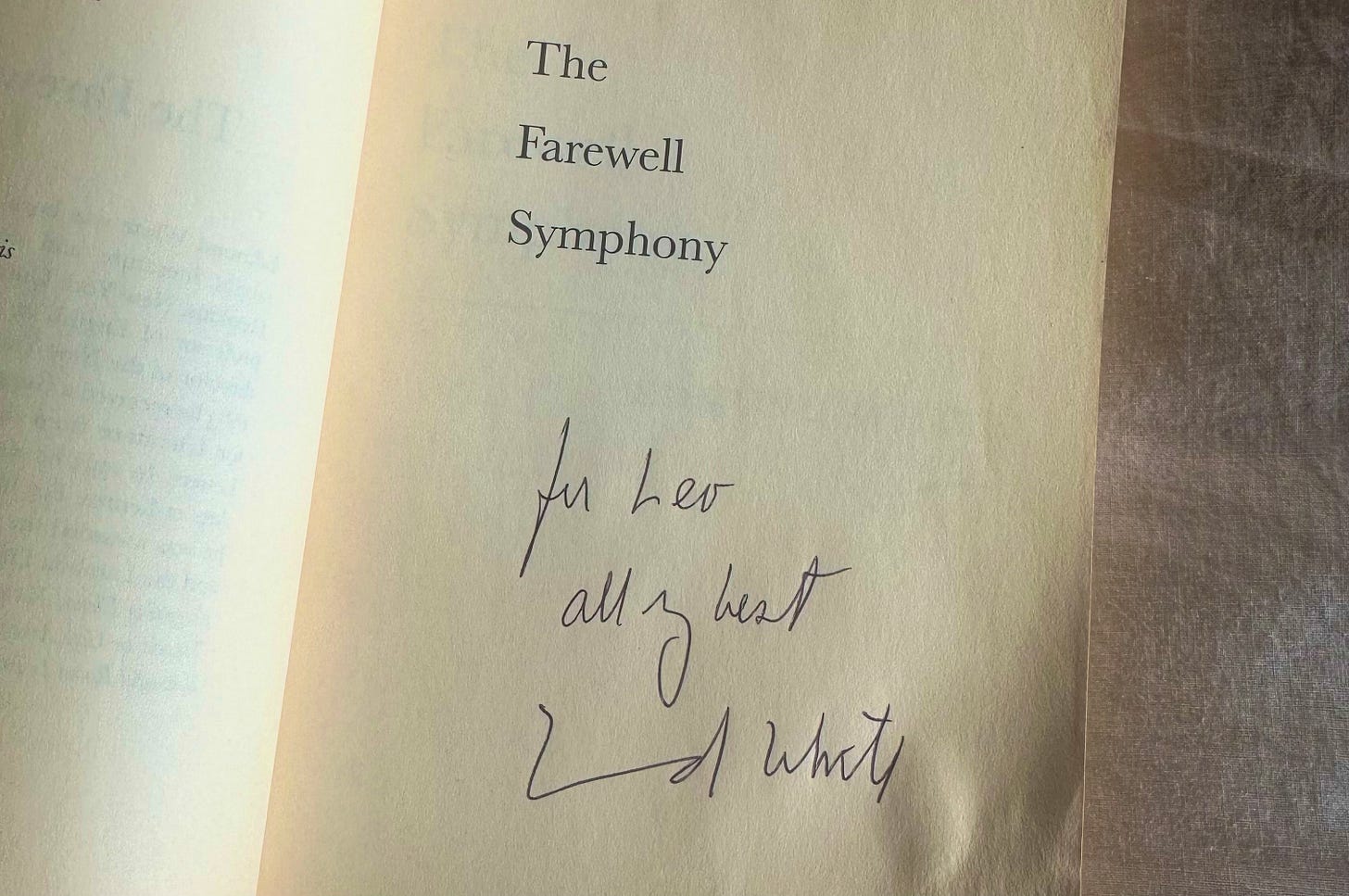Titan and Mirror
Edmund White, 1940-2025
Gay men have not been gifted many full-length mirrors. But scores of us have seen ourselves in Edmund White’s books. No one wrote about Gay love and sex like him. I read his novels when I was 18, and their shadows are all over my life. The way I cruise for sex and how I write about it is because of The Beautiful Room Is Empty and The Farewell Symphony.
I met Edmund White once. I was 21, had just moved to San Francisco, and he had a book signing. I went alone with my copy of The Farewell Symphony. I had never been starstruck before. I tried to say, “Your work had a huge impact on me,” but my tongue turned into wet clay and I said it backwards. He gave me a puzzled look, a kind smile, and a signature. I bolted out of there, mortified.
We say “never meet your heroes” because they may disappoint us, but also because of what we may discover about ourselves. I had never felt as small and unlived as I did in that moment.
His books about the 1960s and 70s were about a Queer life I yearned for but feared I had missed out on. The discos and anonymous sex, the literary successes and the lost loves. The Farewell Symphony became a sort of life checklist for me.
The 1997 novel covers Stonewall to AIDS. The title is a reference to Joseph Haydn’s Symphony No. 45, commonly known as the "Farewell Symphony." In the piece, musicians exit the stage one by one during the final movement, leaving just two players at the end.
I don’t own many books. I move around too much and words are heavy. But my signed copy moves with me everywhere. It’s an amulet and a touchstone. I read it every few years to gauge where I am. That FOMO has shifted into recognition and pride as I get older.
We’re in a war of words, when Queer people are once again clawing back our names. Edmund White leaves a treasure trove and weapons cache, spread far and wide like shards.
Keep reading with a 7-day free trial
Subscribe to Herrera Words to keep reading this post and get 7 days of free access to the full post archives.






